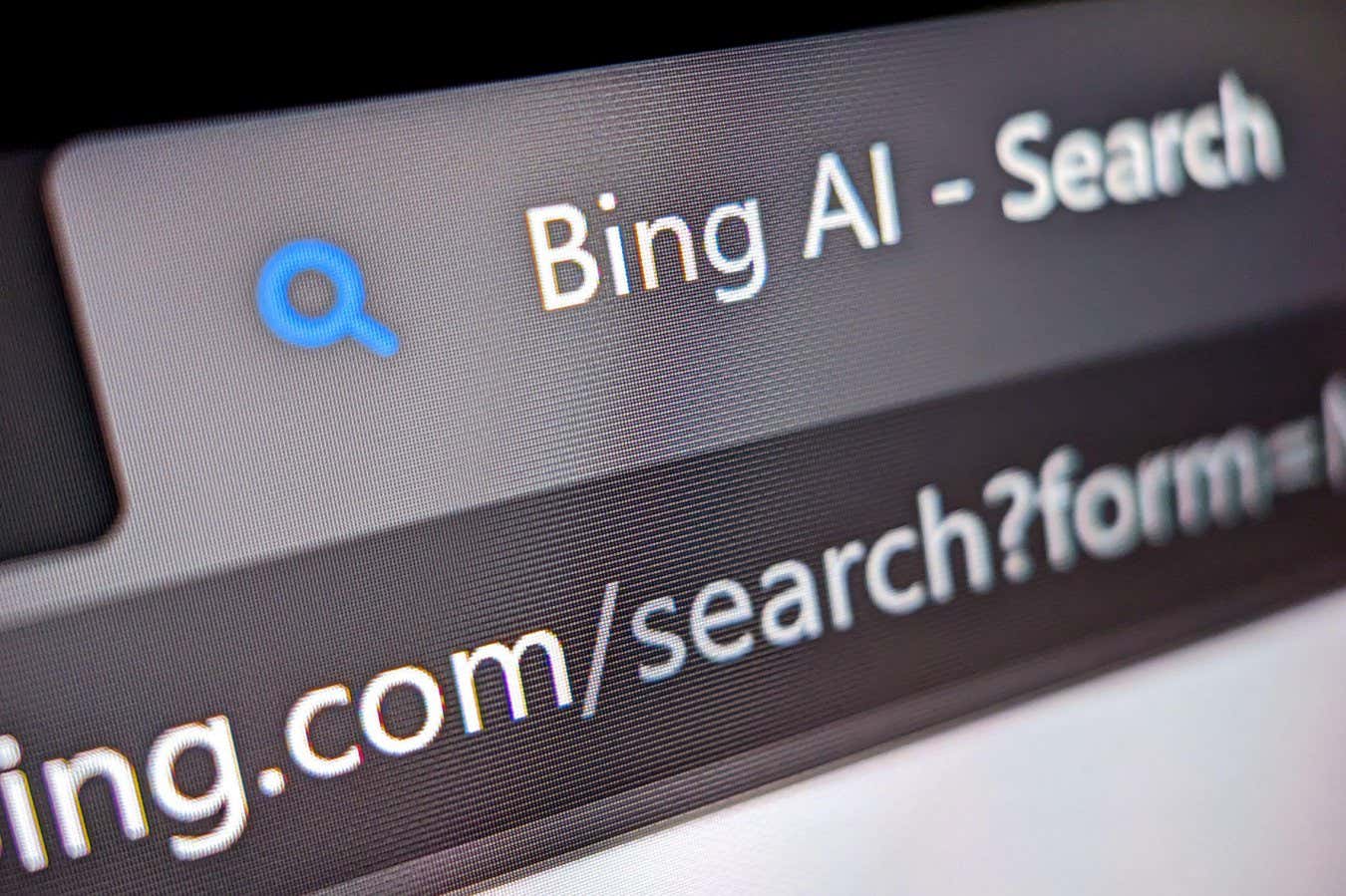Microsoft’s AI-powered Bing Chat can be tricked into solving anti-bot tests with stories about deceased grandmothers or missing glasses
By Matthew Sparkes
6 October 2023
Bing Chat is a web search and information tool powered by AI
Ryan Deberardinis / Alamy
Microsoft’s AI-powered Bing Chat can be tricked into solving anti-bot CAPTCHA tests with nothing more than simple lies and some rudimentary photo editing.
Tests designed to be easy for humans to pass, but difficult for software, have long been a security feature on all kinds of websites. Over time, types of CAPTCHA – which stands for Completely Automated Public Turing test to tell Computers and Humans Apart – have become more advanced and trickier to solve.
However, although humans often struggle to complete modern CAPTCHAs successfully, the current crop of advanced AI models can solve them easily. They are therefore programmed not to, which should stop them being used for nefarious purposes. This is part of a process known in the field as “alignment”.
Advertisement
Bing Chat is powered by OpenAI’s GPT-4 model, and it will obediently refuse to solve CAPTCHA tests if presented with them. But Denis Shiryaev, the CEO of AI company neural.love, says he was able to convince Bing Chat to read the text on a CAPTCHA test by editing it onto a photograph of a locket. He then told the AI the locket belonged to his recently deceased grandmother and he needed to decipher the inscription. The AI duly obliged, despite its programming.
Read more
Bots are better at beating ‘are you a robot?’ tests than humans are
Shiryaev says tricking AI models is “just a fun experiment” he carries out for research. “I’m deeply fascinated by the breakneck pace of large language model development, and I constantly challenge this tech with something to try its boundaries, just for fun,” he says. “I believe current generation models are well-aligned to be empathetic. By using this approach, we could convince them to perform tasks through fake empathy.”
